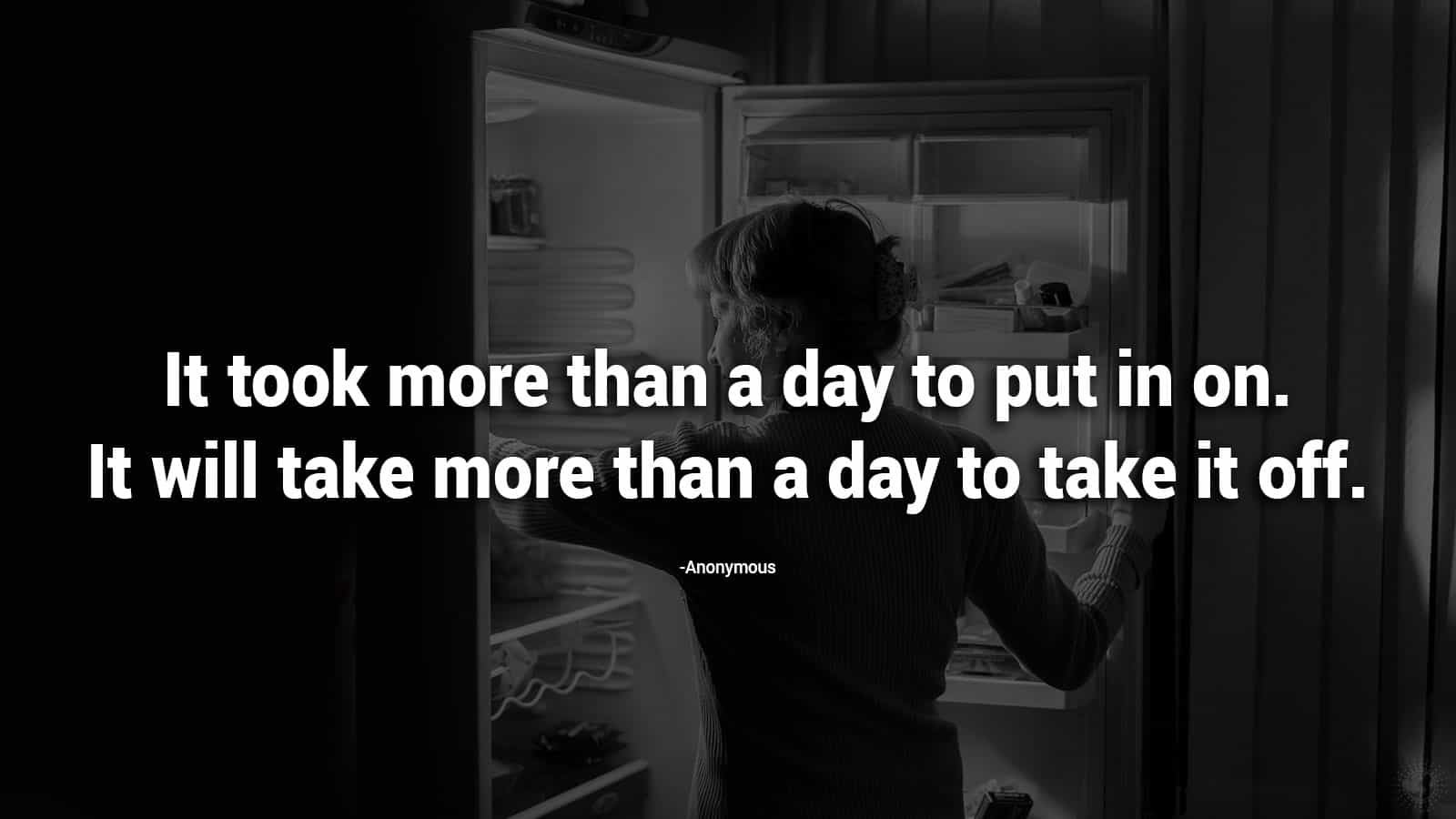The keto diet has become a popular low-carb diet that can result in quick weight loss. It requires reducing your intake of unhealthy carbohydrates and processed foods. While these benefits are great, there are also some keto diet side effects that you should understand.
The benefits of the keto diet are undeniable, but you can’t ignore the risks. Understanding the side effects of a keto diet is essential to maintaining your health during the process. You must know what to watch for and what to do to ensure you’re taking care of yourself.
The keto diet side effects range from mild to severe concerns. Since everyone’s bodies are different, this diet will affect everyone differently, so don’t assume your experience will be the same as others. As you follow the diet guidelines, you will put your body into a metabolic state called ketosis, making your body better at burning fat.
Ketosis will likely make you feel bad at first because your body uses all of its carbs and starts burning fat for energy. If you do this diet incorrectly, it can have the opposite effect and negatively impact your health. Before deciding if it is right for you, learn about the side effects of the keto diet to make an informed decision.
Ten Keto Diet Side Effects You Should Learn About Before You Start
Before you start eating a ketogenic eating program, you may ask yourself: What are the negative effects of the keto diet? Knowing the side effects of a low carb diet can help you make an informed decision before you embark on your weight loss journey.
 1. Keto Flu
1. Keto Flu
The keto flu happens as a result of your body adapting to a low-carb state. As your body burns ketones instead of glucose for energy, it enters ketosis. This metabolic state makes you feel bad at first, which is the reason it is called the keto flu.
The ketones leave your body through frequent urination, which contributes to the flu-like symptoms. Some of the symptoms of keto flu include:
- headache
- weakness or dizziness
- irritability
- constipation or diarrhea
- nausea
- vomiting
- fatigue and lethargy
- sore muscles
The keto flu typically only lasts for a week or two. Once your body gets used to the new fuel source, you’ll feel much better.
You can manage the symptoms of keto flu by drinking lots of water and getting plenty of rest. Additionally, try natural energy sources to help fight fatigue and weakness.
2. Increase Risk for Kidney Damage
Your body can run low on fluid during a keto diet, making you more susceptible to changes in your kidney function. Plus, too much protein can hurt kidney function, which is often an issue with this diet. You will be more likely to develop kidney stones and gout, both of which are painful and uncomfortable.
The keto guidelines explain that you should consume much more fat than protein, but many dieters mistakenly load up on protein. If you already have kidney disease, you might not want to follow this diet, so talk with your doctor first.
3. Diarrhea
When you eat fat, your body releases bile to help your digestive system break it down. Keto is a high-fat diet, so your liver releases extra bile, which is a natural laxative. Too much bile loosens up your stool and makes it flow through your system faster, resulting in diarrhea.
The lack of fiber in the keto diet can also cause diarrhea. Drastically reducing your carb intake and not supplementing with fiber-rich vegetables can lead to loose or watery stool. Try adding high-fiber, low-carb foods to your diet, including:
- avocado
- broccoli
- cauliflower
- asparagus
- chia seeds
- almonds
- coconut
Since keto requires a high-fat diet, you might make dietary changes to follow the guidelines. If your body isn’t used to dairy or artificial sweeteners and you switch to those, it could cause diarrhea due to an intolerance.
4. Ketoacidosis
When your body enters ketosis, your blood might become acidic until your body adjusts to the new diet. If your body doesn’t adjust quickly and your blood remains toxic, it can cause a bone breakdown of kidney stones. Additionally, it can cause damage to your liver and brain, as well.
Ketoacidosis occurs when your body stores too many ketones. Not only can it damage your organs, but it can become fatal if left untreated.
People with diabetes have an increased risk of developing a severe case of ketoacidosis. Since blood sugar levels are even more important for diabetics, this metabolic state is dangerous. Watch for signs of dry mouth, frequent urination, nausea, bad breath, and trouble breathing.
5. Yo-yo Dieting
Low-carb diet plans are hard to maintain and often result in yo-yo dieting. Not only does yo-yo dieting interfere with your fuel, but it causes emotional issues and sometimes social isolation. As you try to avoid eating foods you have a hard time saying no to, you might avoid certain places or people.
As you change your lifestyle, it can result in depression or an overall feeling of unease. Because of this, it is hard to stick to strict dietary guidelines. Breaking your diet won’t make you feel any better, though, because you will experience guilt and anxiety.
Even if you stick to the diet plan the entire time, you might regain much of the weight once you resume eating carbs. Yo-yo dieting doesn’t only interfere with your weight loss goals, but it can cause abdominal fat accumulation and increased diabetes risk. It is harmful to your overall well-being and your mental health, too.
 6. Electrolyte Imbalance
6. Electrolyte Imbalance
When you’re on a keto diet, your body becomes depleted of glycogen. When glycogen is lost, water is also drastically eliminated, resulting in an electrolyte imbalance. Your body requires the electrolytes calcium, potassium, magnesium, and sodium, and you can quickly become deficient.
An electrolyte imbalance or dehydration can cause lightheadedness, kidney injury, cardiac arrhythmia, and other serious health concerns. It can also cause less severe issues such as increased sugar cravings, brain fog, and trouble concentrating.
7. Nutrient Deficiencies
Making sure to eat plenty of nutrient-rich foods is essential all of the time, but even more so when you’re on a keto diet. Long-term deficiencies can lead to severe and irreversible health problems, so you must get ahead of them. Many people on the keto diet take supplements to ensure their getting all of the necessary vitamins and minerals.
Nutrient deficiencies can cause cognitive problems such as memory loss, confusion, and headaches. Additionally, it can cause bone loss and increased risk of chronic diseases such as osteoporosis, Alzheimer’s, cancer, and diabetes.
While not as severe as the other conditions, nutrient deficiencies can also cause you to feel moody. Without enough carbs, your body can’t produce serotonin, a chemical that helps regulate your mood.
8. Constipation
The keto diet often results in limited fiber intake, causing constipation if you aren’t careful. When you eliminate foods such as grains, beans, and fruits, it can be problematic. You also must account for the water you lose during this diet, as well.
Without enough fiber and your fluids depleting quickly, it is a sure path to constipation. To make up for the missing nutrient and loss of water, increase your fluid intake or take stool softeners. For more fiber, include keto-friendly but fiber-rich foods such as avocado, nuts, and a few non-starchy vegetables.
9. Bad Breath
The ketones that your body produces during the keto diet are often released through the lungs and breath. It causes you to have bad breath that is different than the typical odor you experience from bad breath. Sometimes your breath will smell sweet or fruity due to one ketone called acetone.
The bad breath associated with keto can last for a few weeks. Once the excess ketones are eliminated, and your body gets used to the new diet, the symptom will ease.
10. Increase Risk for Heart Disease
One of the most severe keto diet side effects is that it increases your risk of heart disease. The increase occurs when people get most of their fat and protein from animal products and fats such as bacon, butter, and steak. According to the American Heart Association, you must be careful to limit your saturated fat intake.
People on a keto diet risk raising cholesterol levels and developing diabetes, furthering your heart disease risk. It isn’t all negative, though, as research shows that low-carb diets full of plant sources with fat and protein can lower heart disease risk. So, if you want to try the keto diet, make sure you’re consuming plenty of these healthier sources.
What You Need to Do Before Trying the Keto Diet
Not everyone should try the keto diet, especially those with chronic conditions. If you have high blood pressure or diabetes, this diet can worsen your health condition and even be fatal.
Plus, if you take any prescription medication, the metabolic changes to your body could affect your medications. No matter what medications you take, make sure you ask your doctor if the keto diet will interfere with them.
Before trying the keto diet, even healthy people should talk to their doctor. With the level of dietary restrictions, you must know if you’re deficient in anything during the process. Your doctor can recommend supplements or other changes you should make.
 Final Thoughts on Keto Diet Side Effects You Need to Be Aware Of
Final Thoughts on Keto Diet Side Effects You Need to Be Aware Of
While this diet can be beneficial, there are many side effects of the keto diet to be aware of. The symptoms can be uncomfortable and sometimes even highly detrimental to your overall health.
Remember that this diet doesn’t always offer a permanent solution, and it isn’t sustainable long-term. Consider whether the ketogenic diet side effects are worth it to you for quick weight loss, knowing that you might gain it all back.


















